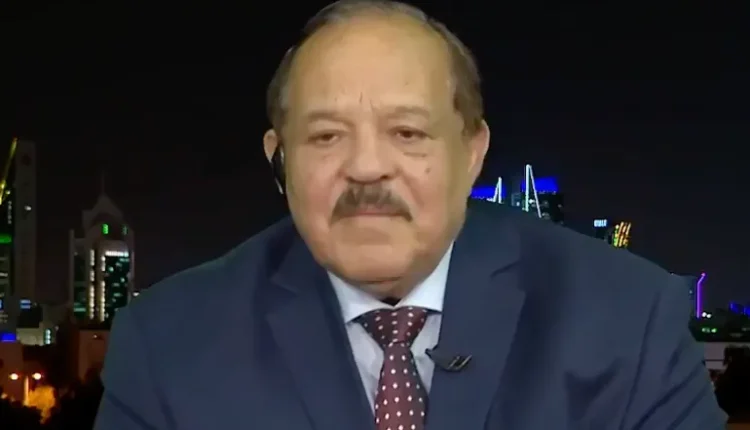Foreign Minister Briefs British Media on Latest Developments in Sudan

London – Sudanhorizon
The Minister of Foreign Affairs, Dr. Ali Yusuf, held a press conference organized by the Sudanese Embassy in London, Monday, covered by most prominent British media organizations.
In the conference, the Minister gave a comprehensive briefing on the latest developments in Sudan and the challenges facing the country in light of the continued attacks committed by the Rapid Support Militia which enjoys an open foreign support.
The minister reviewed the attacks launched by the militia on the IDPs camps on vicinity of the city of Al Fashir, especially in Abu Shouk and Zamzam, indicating that these brutal attacks come within a plan to use civilians as human shields in preparation for controlling the city, coinciding with the London Conference, in an open attempt to legitimize the project of dividing Sudan and establishing a parallel entity in Darfur and parts of South Kordofan.
The minister stressed that the Sudanese Armed Forces (SAF) control most of the country, with the exception of states in Darfur and some limited pockets in Kordofan states and areas South of Omdurman, and continues their operations to protect civilians in freed areas.
The minister noted that the militia, after being expelled from Khartoum, resorted to the use of strategic drones operated by external parties to target vital service facilities such as water and energy in the of Khartoum, Gezira and the Shamalia states, which constitutes a full-fledged crime against civilians.
He underlined that the Sudanese government is in constant contact with the United Nations and regional organizations, which have clearly condemned these attacks.
With regard to the London conference, the minister explained that he had met with the British Undersecretary of the Foreign Office for Political Affairs on the sidelines of the Munich conference, where they discussed bilateral relations, and the British positions in the Security Council towards Sudan.
He said he has underlined in that meeting that any active international role in Sudan must be done in coordination with the legitimate Sudanese government.
He added that according to the British side, the conference will focus on humanitarian affairs, and the Sudanese government should have been invited, but the lack of an invitation, while at the same time invitations have been extended to countries associated with supporting the militia, such as the UAE, Chad and Kenya, was a source of legitimate discontent.
The minister pointed out that he sent an official letter to the British Foreign Secretary in which he clarified Sudan’s position on the conference, stressing the presence of friendly countries that will express Sudan’s point of view during the conference.
In response to journalists’ questions, the minister addressed a number of fundamental issues, explaining that the previous British government prevented the consideration of Sudan’s complaint against the UAE before the Security Council, and did not consult it on its draft resolution on Sudan that it submitted to the Security Council last November.
He stressed that relations between the two countries are continuing, praising at the same time Britain’s position rejecting the establishment of a parallel government in Sudan.
Regarding the voices in support of the Sudanese government at the London conference, he stressed that brotherly countries such as Egypt, Saudi Arabia, Turkey, and Qatar have a deep understanding of the reality of what is happening in Sudan, while the UAE is the main supporter of the militia, and Chad opened its territory to the passage of logistical support, while Kenya hosted conferences aimed at undermining Sudan’s unity.
As for humanitarian access, the Minister stressed that the Sudanese government stand ready to cooperation with the United Nations and humanitarian organizations, and that it has facilitated visas and permits process for those organizations and it has allowed aid to passage of assistance through all corridors, including air transport from South Sudan to South Kordofan.
With regard to the allegations of army violations, he stressed that the Sudanese Armed Forces represent all segments of the Sudanese people and do not commit any violations because they are a national and professional army, while there is documented and conclusive evidence that the RSF committed crimes against humanity, including genocide, rape, murder and forced abduction in a systematic and deliberate manner.
On the possibility of Sudan supporting the Chadian opposition, the minister said that the Sudanese government does not intend to support any opposition to Chad, and adheres to legal means, including the ongoing case before the International Court of Justice, while retaining its self-defense by all means as allowed to it by the Charter of the United Nations and international law.
Regarding the relationship with Israel, the minister clarified that he is not aware of an official visit from a Sudanese envoy, noting that the government categorically denied this.
As for Iran, he stressed that Sudan has restored its relations with Tehran in accordance with the principle of national interest, after a seven-year break without justification, which should not be interpreted within the axes of East or West.
He also reiterated that Sudan does not reject the principle of a ceasefire if the militia withdraws from all the areas it occupies, stops its military operations, and hands over its heavy weapons. The Sudan has presented a clear road map to the United Nations detailing those arrangements, he said.
Shortlink: https://sudanhorizon.com/?p=5130

